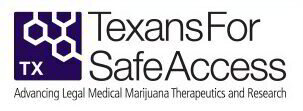WE BELIEVE | WE ADVOCATE | WE EDUCATE | WE SERVE
Blog

Seizures and Medical Cannabis

Seizures and Medical Cannabis
Understanding Seizure Disorders
Seizure disorders, such as epilepsy, are characterized by abnormal electrical activity in the brain, leading to recurrent, unprovoked seizures that vary in intensity and duration. While antiepileptic drugs (AEDs) are the standard treatment, not all patients respond effectively, and many experience adverse side effects (National Institute of Neurological Disorders and Stroke, 2021).
The Endocannabinoid System (ECS) and Cannabinoids
The endocannabinoid system (ECS) plays a critical role in regulating brain function and neurological activity. The ECS includes cannabinoid receptors, naturally produced endocannabinoids, and external cannabinoids found in cannabis. Two key cannabinoids—cannabidiol (CBD) and tetrahydrocannabinol (THC)—have been extensively studied for their potential anticonvulsant properties (Devinsky et al., 2014).
CBD and Seizure Control
CBD, a non-psychoactive compound, has gained attention for its anticonvulsant effects. Clinical trials have demonstrated that Epidiolex, an FDA-approved CBD medication, effectively reduces seizures in rare forms of epilepsy, such as Dravet syndrome and Lennox-Gastaut syndrome (Thiele et al., 2018). These findings provide hope for patients resistant to traditional AEDs.
THC and Other Cannabinoids
While CBD has been the focus of most research, other cannabinoids, including THC, may also contribute to seizure management. Some patients report success with balanced CBD-to-THC formulations, though THC’s psychoactive effects require careful medical supervision (Rosenberg et al., 2017).
Considerations and Precautions
Before incorporating medical cannabis into a treatment plan, patients should consult their healthcare providers to assess dosage, administration methods, and cannabinoid profiles. Responses to cannabis-based treatments vary, making personalized medical guidance essential (National Academies of Sciences, Engineering, and Medicine, 2017).
The Texas Compassionate Use Program (TCUP)
In Texas, the Compassionate Use Program (TCUP) allows qualified patients to access low-THC cannabis for medical purposes. Since its enactment in 2015, the program has expanded to include more qualifying conditions and higher THC limits for certain products (Texas Department of Public Safety, 2023).
As research on medical cannabis and seizure disorders continues, it is crucial to balance scientific evidence, patient experiences, and regulatory considerations. While not a universal solution, medical cannabis offers a promising alternative for individuals whose seizures remain resistant to conventional treatments.
References
• Devinsky, O., Cilio, M. R., Cross, H., & et al. (2014). "Cannabidiol: Pharmacology and potential therapeutic role in epilepsy and other neuropsychiatric disorders." Epilepsia, 55(6), 791-802.
• National Academies of Sciences, Engineering, and Medicine. (2017). "The health effects of cannabis and cannabinoids: The current state of evidence and recommendations for research."
• National Institute of Neurological Disorders and Stroke. (2021). "Epilepsy: Hope through research."
• Rosenberg, E. C., Louik, J., Conway, E., Devinsky, O., & Friedman, D. (2017). "Cannabinoids and epilepsy." Neurotherapeutics, 14(4), 747-768.
• Texas Department of Public Safety. (2023). "Texas Compassionate Use Program."
• Thiele, E. A., Marsh, E. D., French, J. A., & et al. (2018). "Cannabidiol in patients with seizures associated with Lennox-Gastaut syndrome." New England Journal of Medicine, 378(20), 1888-1897.

